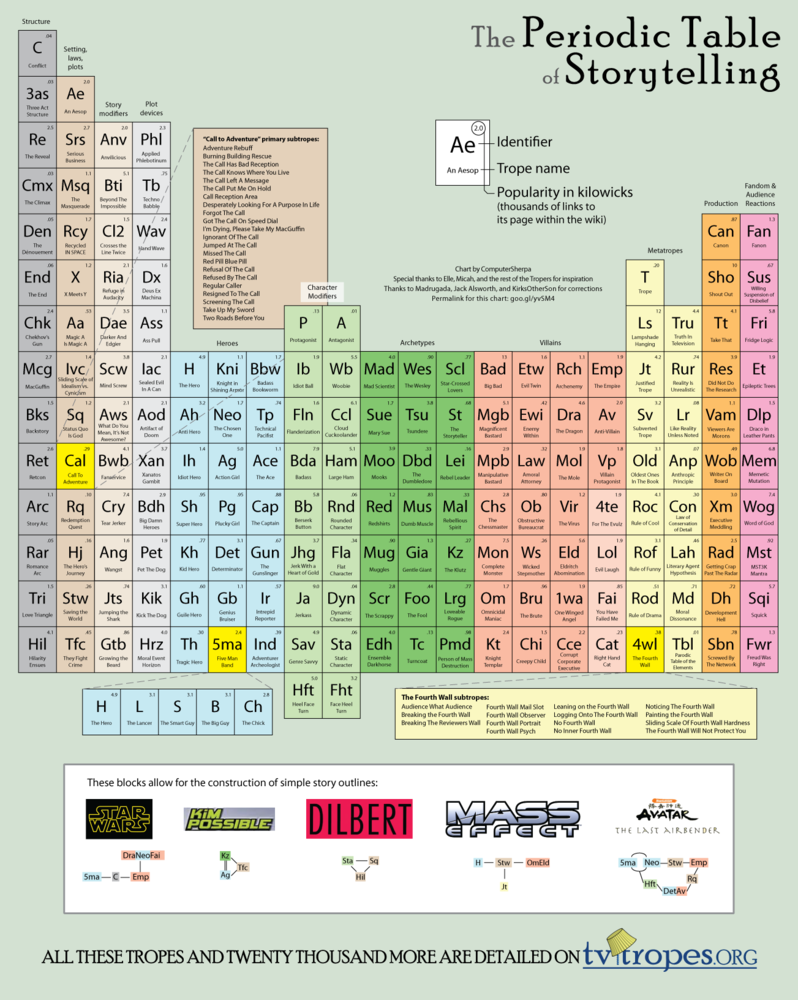Kunststudent ComputerSherpa kam auf die witzige Idee, alle wichtigen Elemente von
Story und Erzählkunst als Periodensystem darzustellen.
Besonders praktisch: alle Begriffe kann man auf der TV-tropes Seite nachschlagen.
Z.B. „Checkov’s Gun“ (ein Klassiker…), gelistet ganz links unter Struktur
„If you say in the first chapter that there is a rifle hanging on the wall, in the second or third chapter it absolutely must go off. If it’s not going to be fired, it shouldn’t be hanging there.“
Chekhov’s Gun is a literary technique whereby an element introduced early in the story becomes significant later on. For example, a character may find a mysterious necklace that turns out to be the power source to the Doomsday Device, but at the time of finding the object it does not seem important. Although many people consider the phrase „Chekhov’s gun“ foreshadowing, the statements the author made about it can be more properly interpreted as „do not include any unnecessary elements in a story.“ The gun is primed to go off on a hair trigger, while foreshadowing is softer and can be missed by the audience, sometimes noticed only upon a second viewing. When used properly, this rule gives the item in question some degree of presence before being used, enough to prevent a potential Ass Pull that might jar and grate on the viewer’s Willing Suspension of Disbelief. It can, however, turn out to be a Red Herring after all. As a result of the success of franchises like Lost or Harry Potter, viewers and fans of Myth Arc-laden and/or carefully written shows and books have become accustomed to obsessing over minuscule details and looking out for Chekhovs Guns everywhere and anywhere… whether they actually exist or not. We call these Epileptic Trees and Wild Mass Guessing. Those hearing this term for the first time should note that a Chekhov’s Gun is usually not a literal gun — it can be anything.


